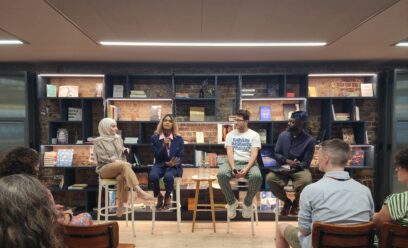Creating strong news stories
Posted by Michael Butscher on October 14, 2022Imagine that your organisation received a tip-off that a bill to grant asylum seekers the right to work will be read in Parliament for the first time and your organisation wants to be the first to make it public. The first two paragraphs of your press release must have that bang to move any news editor into action and give it the prominence you anticipate.

Source: pexels.com
What is news?
News-writing or writing a press release to attract the attention of editors is a very skilful art but once you master it through regular practice, it becomes as easy as drinking water. First and foremost, it is good to know what is news.
In today’s world of social media where citizen journalists, ordinary people voluntarily playing an active part in collecting, reporting and sharing (often unsolicited) news and information, news has not changed its meaning. News is anything new that interests your targeted audience. It is the account of an event.
News must contain the following attributes:
- Newly received information on events – timeliness
- Fresh development in on-going events
- A struggle, a fight or disruption of the status quo – conflict like the Rwanda deportation or right of asylum seekers to work
- Something not heard or read before – exclusivity
- A subject, person or event judged to be of public interest – significance
- Information on future events of public interest
- Human interest value – appeals to people’s emotions.
Normally, news editors are looking for original stories, breaking news, hard, incisive interviews with the person or people of the day. I always emphasise to my reporters the essence of speed, variety, texture and of course, the element of surprise in writing stories for their audiences.
How do you make a story more interesting to readers?
- Use plain and simple language
- Write short sentences and few paragraphs. Each new paragraph should support the previous one.
- The most important facts should be written in the early paragraphs
- Avoid personal comments or being judgemental in writing your stories
- Truth is essential always
- Attributions spice up a news story but you should inject them appropriately using correct punctuations
- Remember that a news story is not a commentary or a feature story but an organised report on what happened
- Your story should flow in a coherent manner using the five ‘Ws’ and one ‘H’ style: What, Where, Who, When, Why and How as a guide.
Be precise. Go straight to what you want to say.
Here is example from an Indian international news service:
‘The United Kingdom’s controversial plan to send asylum seekers to Rwanda is all set to go ahead after the Court of Appeal in London refused to grant injunction to block Britain from sending its first asylum seekers to Rwanda. A total of eight passengers will be flown to Rwanda today as part of the deal.’ (WION)
Take your time to reflect on this short story and you’ll see that all the questions from the guide above were answered in just two paragraphs.
This story was broadcast on the day the failed deportation was scheduled. Ideally, it is better for your organisation to release this story at least a day before the event. As discussed, news is partly about timeliness (this particular story would have been irrelevant as soon as the flight was cancelled). You cannot successfully do this overnight but regular practice with the guide in mind should bring good results.
How to interview a difficult interviewee: what questions help them to speak
An interview should always reflect a good conversation where the interviewer and interviewee are relaxed. The interviewer should be polite, respectful and friendly. Sometimes seeking information from someone can create conflict and tension to the discussion. You want to ask questions your audience would want to ask if given the opportunity. You have to ask tough questions, but in a tone and manner that would not offend the interviewee or raise tension. Do not antagonise or embarrass the interviewee.
It is your responsibility to create a congenial atmosphere for you to get the information you seek. Stay polite and friendly. The interviewee will open up to you when assured that you are knowledgeable about the issue. Do your background research and get familiar with the issue for discussion.
Avoid questions that can be answered, ‘Yes’ and ‘No’. Ask questions one at a time.
Do not overstay your welcome. Go straight to the point and be brief.
Remember good news stories are timely and precise. Always consider what will be interesting to your audience and appeal to their emotions. It’s really worth investing in creating strong news stories because experience shows they have the power to change people’s hearts and attitudes.



